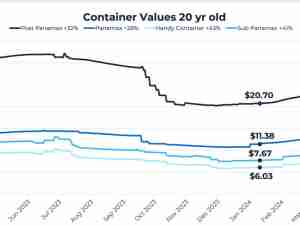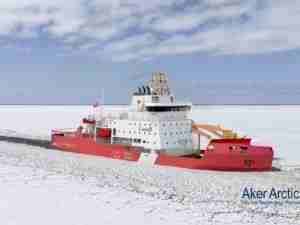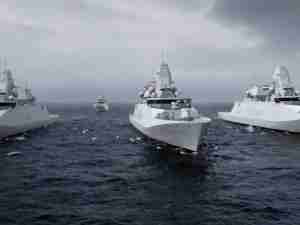Although the Maritime Security Discussion Agreement failed to establish a nationwide method for recovering security-related costs, the industry veteran who has chaired the group believes its two-year effort was not for naught.
"While we may have missed our window of opportunity, the lessons learned and experience we all gained from working with one another - carriers, terminals operators and operating port authorities - is of significant value to all, and, should the need arise for MSDA to reactivate our efforts, we certainly will benefit by our past experiences," C. Thomas Burke, the body's chairman, told the American Journal of Transportation.
While he was in Miami on June 23 for the SecurePort 2005 Western Hemispheric Port Security Conference and Trade Exhibition, and in a followup conversation last week, Burke spoke of frustrations and benefits associated with bringing representatives of dozens of ocean carriers, terminal operators and operating port authorities together.
"I think we had a window of opportunity to do something really substantial for the industry, and I think we got bogged down in minutiae," said Burke, who also continues to serve as senior adviser to the president of Kawasaki Kisen Kaisha Ltd. ("K" Line America Inc.).
"For almost two years, while our Maritime Security Discussion Agreement members were meeting, the port authorities held off establishing their own security fees, which represented a significant savings for the ocean carriers," he said. "But now we must contend with all the separate port security fees, which is exactly what we had hoped to avoid."
The MSDA coalition was sanctioned by the Federal Maritime Commission to develop a nationwide mechanism to recover port, terminal and vessel costs associated with increased security levels demanded following the tragic events of Sept. 11, 2001. The port industry in the United States and beyond, including in Japan, had been looking to the MSDA, Burke said.
In the nearly six months since the group stopped its schedule of at least once a month meetings, various port conferences and port authority entities, as well as some of the carriers, have begun implementing what Burke described as, "a hodgepodge" of security-related charges.
"The ports bill directly to the ocean carrier, which is what we were trying to avoid," he said.
What happened to the MSDA, according to Burke, was that, as an agreement neared on a designated nationwide fee to meet costs associated with toughened mandates, some major carriers pulled out of the coalition.
"At times, the room was not large enough for all those egos," Burke said. "Everybody wanted to speak at the same time... If I hadn't had a sense of humor, I'd have gone nuts."
Burke's distinguished industry career dates back to the 1960s, and includes stints as port director in Duluth, MN, Cleveland and South Florida's Port Everglades, as well as in stevedoring and ocean carrier positions. He also served as an alternate study commissioner of the Panama Canal Commission. He said he is willing to shoulder "some of the blame" himself.
"I know that everybody was waiting and hoping that it would be successful," he said humbly. "I just wish I would have been more successful."
"A good lesson in camaraderie"
Nonetheless, Burke said he believes that MSDA participants, including himself, benefited by developing greater mutual understandings and by coming to the realization that the participating entities were looking at divergent cost factors. Also, he said, ocean carriers saved money because they did not have to pay directly for security fees in the time during which the coalition was meeting.
"It was a good lesson in camaraderie," Burke said. "It's probably the first time that so many ocean carriers, stevedoring companies and operating port authorities have been in the same room together. I could see them becoming friends and going out and having dinner together, which was something that hadn't been happeni









